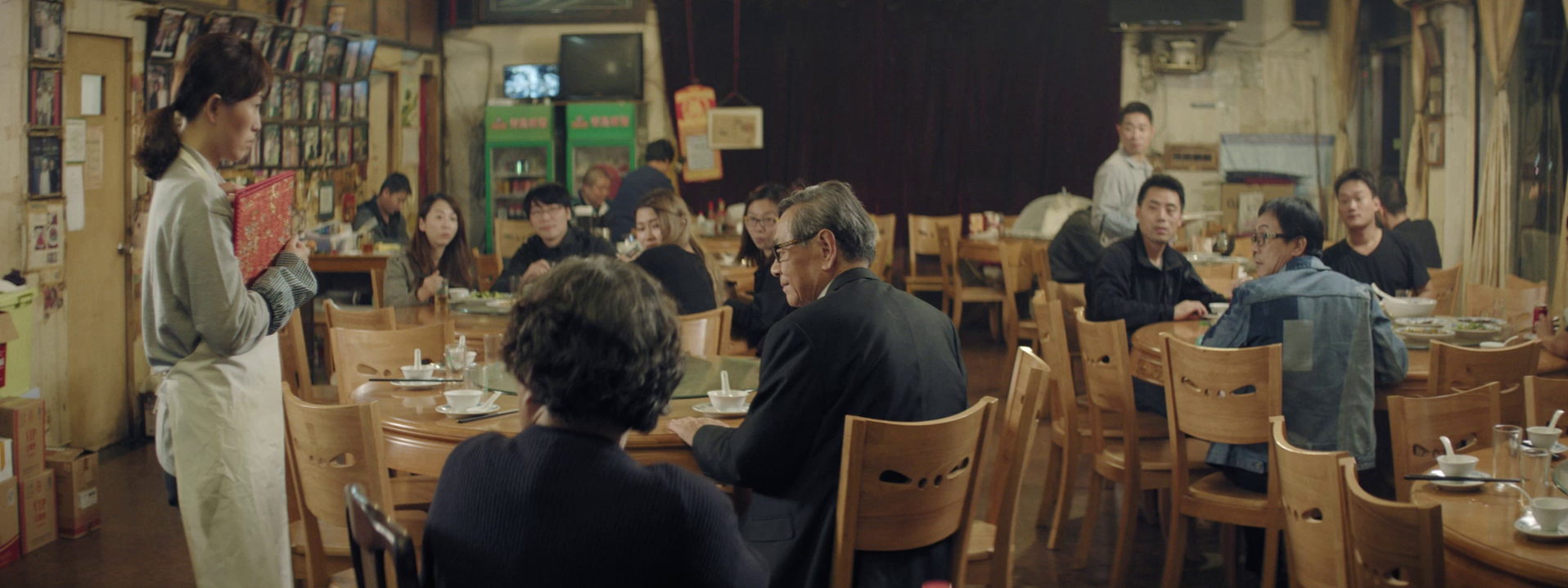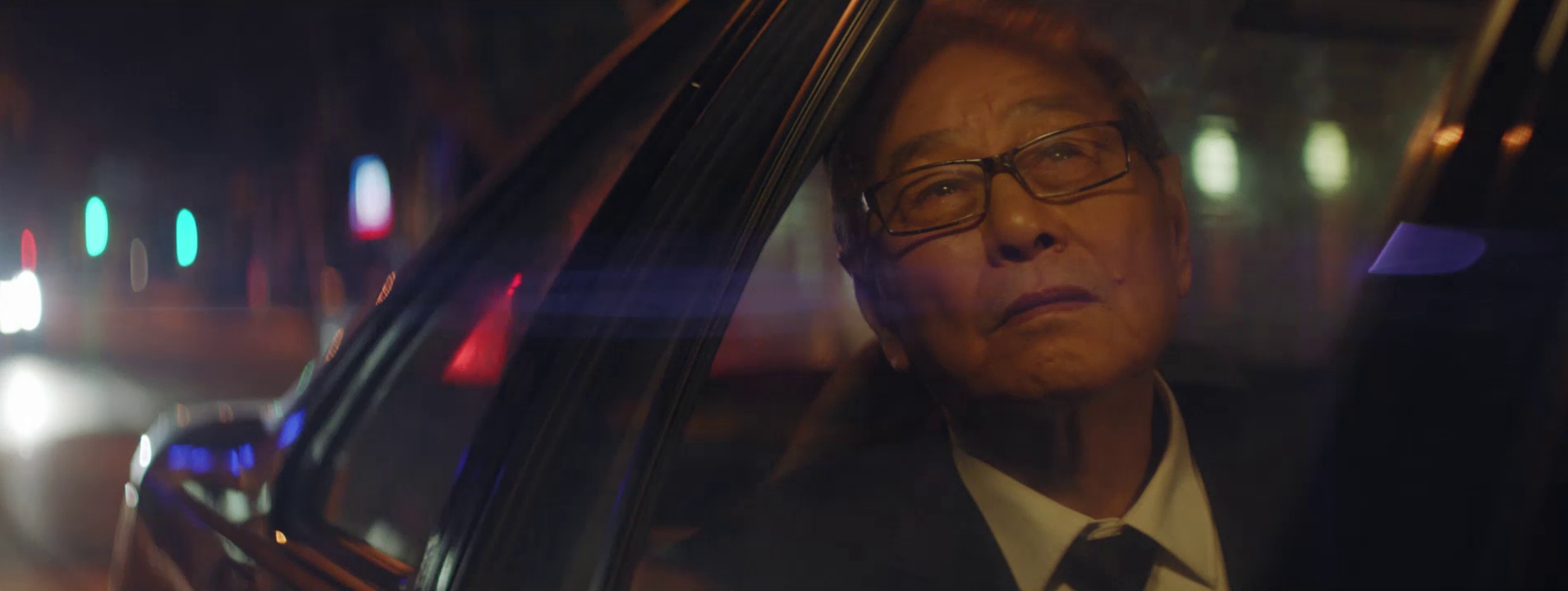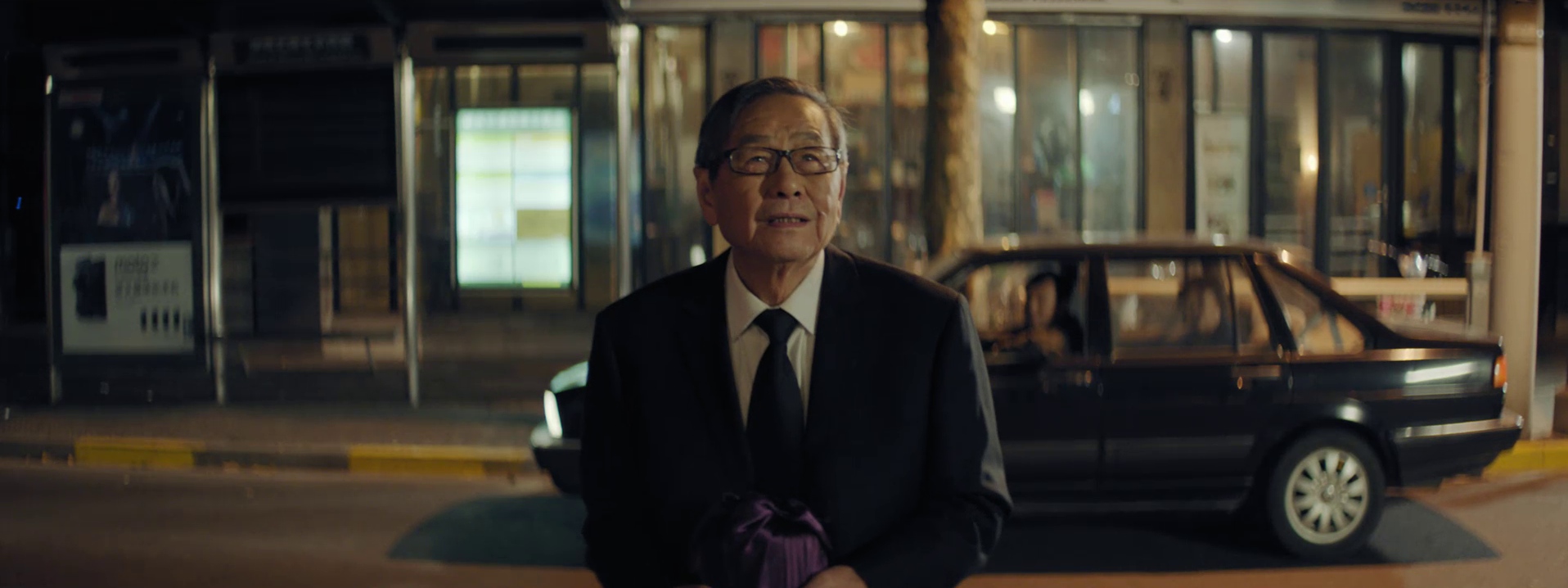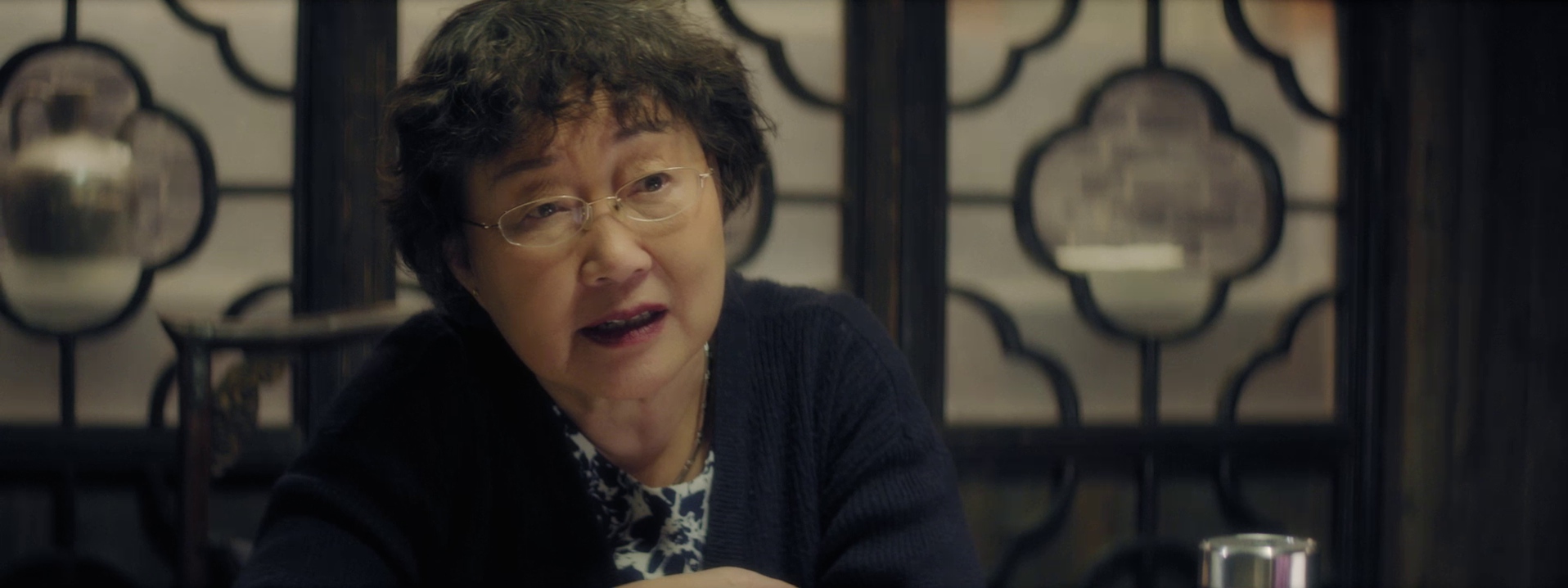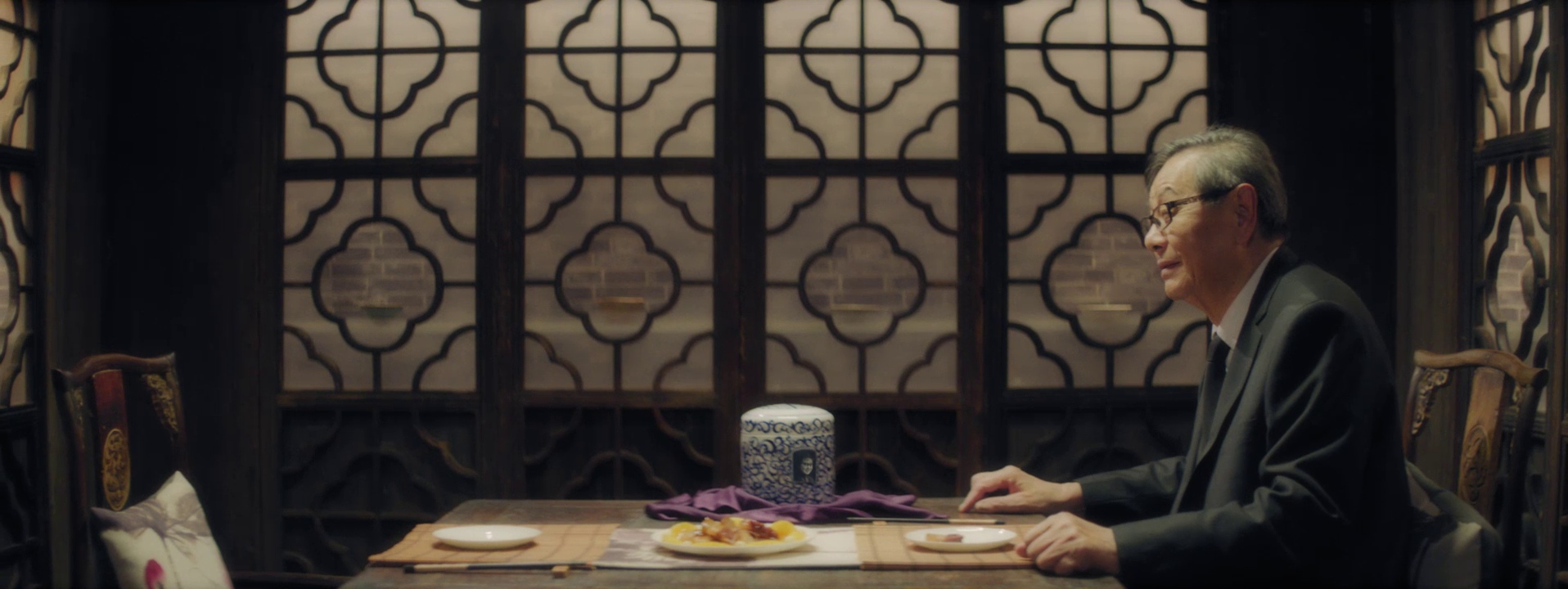Huo Fang : You will savor its balance of salty and sweet.
Huo Fang is the name of a famous dish, popular in southern China, Hang Zhou and Su Zhou provinces. The literal translation of the two words "Huo Fang" are "Fire" and "Square" respectively. It's ham, rosy meat with plenty of fat, steamed to perfection and topped with a sauce of honey infused with rock sugar and lotus seeds.
It was one of my favorite dishes served at wedding banquets when I was a kid. You eat it with hands, sandwiched the glazed ham with two pieces of fluffy white toasts. The taste is rich and satisfying.
The story starts about a stubborn old man who endures his wife's persistent nagging while struggling to find a dish, Huo Fang, a taste from his distant youth, however a bite of it puts to rest their life-long quarrels.
Synopsis:
Sitting in thoughtful silence, old man Yang cradles a cloth-draped jar, smoking absentmindedly outside an austere building. Though Yang's son tries to convince him to go home together, he would rather be left alone. To reduce conflict, the daughter-in-law arranges a car for him.
Reacting to his stubbornness, Yang’s wife bombards him with cynical complaints. However, the more she complains, the stronger he focuses on a single desire. That is to simply taste the dish named Huofang. Though it is getting late, Yang heads to an old authentic Shanghai restaurant where he learns the rich and delicious but greasy dish is no longer on the menu. The wife feels she is winning the debate as she chides him about his health.
Frustrated but not beaten, Yang continues his search with the driver's help and reveals the reason why he longs to savor the succulent dish. She recalls the most beautiful moment when they were both young. In the name of love, she resolves to end their conflicts. Yang closes his eyes in reverie at the taste of the delicacy and when he opens his eyes, he is alone. Yang realizes that his wife has passed away. He unveils the jar he carried beneath a cloth and reveals a picture of his wife when she was young. He sits in solitary silence in the nostalgic restaurant contemplating his lost love.
Director's Statement:
The message I am exploring with Bittersweet is that in the name of love and caring, we often settle for or force our loved ones into certain roles in a relationship and sometimes it can become a suffocating cage. There is never an ideal moment to confront oneself or the other to make changes but if you do not resolve the situation, time will.
I was inspired by how my mother, now in her 70s, handled the loss of my father in 2011. Of course, at first she alternately felt lost, sad, confused or even angry but what was inspiring was her will to transcend that depression. She started taking interest in photography and volunteering in the community. I was impressed by her capacity for taking a leading role in her community and in finding herself after her loss.
With a sense of how my mother gracefully dealt with my father's death and renewed her own interest and passion for life, combined with some rather ambivalent insights toward marriage, I started to weave a short story about the relationship of an old couple. I wanted to explore the lifelong sacrifices we make for each other in a relationship. Even though Asian culture presents some unique cultural traits, I believe this story conveys a shared universal sentiment.
The basic relationship in this short is a two-way street: the Grandpa wants to have a bite of the dish, Huo Fang, directly after his wife's funeral. His wife, as a ghost or spirit, appears to him. She nags him and tries to discourage him from this impromptu decision. The initial desire for Huo Fang might seem only a whim, however after his request was first denied, the quest for Huo Fang has clearly become a mission for him. The deceased wife learns that having Huo Fang offers a connection between them rooted in reminiscence of their early romance. Finally, she graciously allows her husband a bite of the beloved dish as she lets go of him, leaving him for good.
The production of Huo Fang, Bittersweet, was conducted in the early winter of 2016 in Shanghai. We had a quick 4 day shoot, averaging 6 to 8 hours a day.
Bittersweet one-minute trailer.
